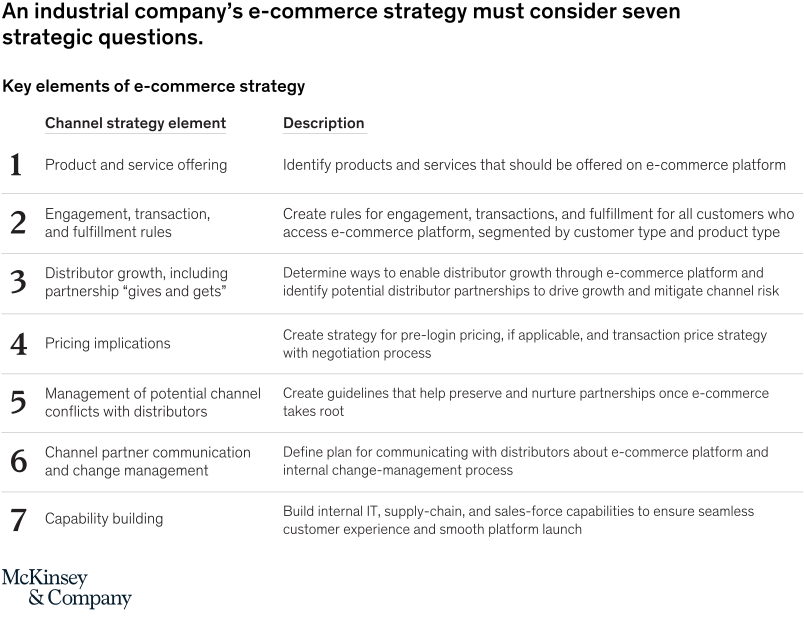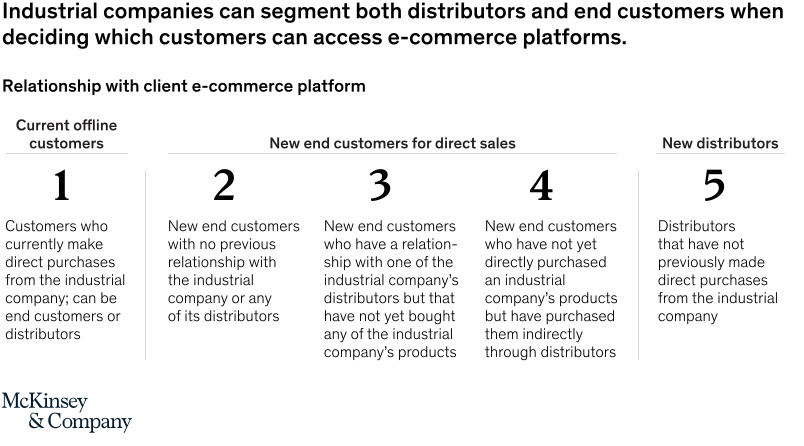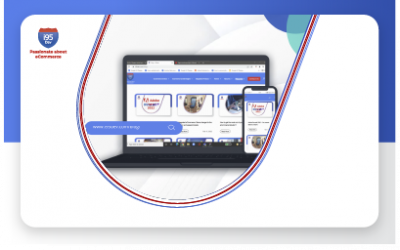It’s 2022, and many industrial manufacturers have started digitizing their sales and marketing efforts. This move serves multiple interests ranging from achieving greater market penetration to fetching customer inputs for product development. However, improving customer experience (CX) remains the primary focus in the current times as omnichannel purchases continue to gain traction. The US industrial manufacturing sector is estimated to touch $7.96 Trillion in 2022, contributing roughly 24% of GDP.
Integrated eCommerce plays a significant role in the process since it allows manufacturers to connect the customer-facing digital assets like a web store, chatbots, social commerce, and email with the operations viz production, quality control, inventory management , and shipping. In this article, the experts at i95Dev will discuss the role of integrated eCommerce in the growth of industrial manufacturing. Let’s get started:
Explained: Why integrated eCommerce is the need of the hour for industrial manufacturing
eCommerce is becoming a more significant part of customer acquisition, marketing, sales, and client servicing both in the industrial manufacturing sector’s B2B and B2C models. However, this demand is largely based on customer-specific requirements as a minimal number of manufacturers are proactively digitizing their businesses to make themselves customer-centric.
Generally speaking, the industrial manufacturing companies have lacked digital tools and channels since the very beginning. As the digital world is making strides to shift from the internet to the metaverse, most industrial manufacturers rely on traditional sales and distribution models for business. The below infographic by McKinsey displays the state of industrial manufacturing in this context:
Thus, it is clear that more than 50% of the customers are looking forward to digitized experiences, resulting from the overall digitization of our lifestyles and interactions with other industries.
We can say that even industrial manufacturers who adopt integrated eCommerce in 2022 would be deemed as “early adopters.” Let us have a look at the advantages an industrial manufacturer would avail with integrated eCommerce adoption:
Benefits Of Integrated eCommerce For Industrial Manufacturing
To begin with, integrated eCommerce unifies your selling channels with your ERP software with full-scale automation and role-based gated access to data to your staff. In addition, an integrated eCommerce solution will help you improve your industrial manufacturing business’ internal and external operations in the following areas.
#1 Improvise Market Discovery and Penetration
For an industrial manufacturer, the product life cycle tends to be longer due to two major reasons: changing the production infrastructure is capital intensive, and fetching product feedback is a long process. The second aspect becomes more addressable with integrated eCommerce as businesses can start operating in new regions without heavy investments or developing strategic partnerships in the form of a distributor network.
Also, they can engage customers in the existing markets through eCommerce platforms to develop D2C business. In both cases, the direct contact with end-users of their products helps generate a refined understanding of the otherwise granular voice of the customer insights paradigm under such settings. On top of that, integrated eCommerce can help segment sales through both traditional and digital channels:
#2 Conduct Product Feasibility Analysis
The ability to connect directly with the customers isn’t sales-centric for most manufacturing units since their products would be a part of a larger bundle or need value additions before consumption.
Hence, a more tangible benefit of integrated eCommerce will come from product feasibility analysis. Industrial manufacturers can use client interactions, market insights, trends, and improvement suggestions/requests to improve their product portfolio.
#3 Extend 24/7 Customer Support and Enable Self Servicing
The ability to serve customers located in any region at any given time is one of the most sought-after benefits of integrated eCommerce for manufacturers. This allows them to get the benefits as mentioned above even if they don’t wish to sell directly to the customers.
Another advantage they get from this arrangement is providing self-service portals to extend information without any layer of human-to-human contact. This can help reduce the issues caused by a lack of knowledge on the part of consumers, which leads to dissatisfaction.
#4 Supplement Existing Sales Channels
In many cases, an industrial manufacturer may not wish to implement the D2C (Direct To Customer) model as their primary business model. Still, instead, they would like to use it as an additional measure.
This can be highly beneficial in cases where the distributors also sell items to competing brands, thus limiting their ability to store your products. In such cases, you can allow them to sell the products which your brand ships while the rest of the responsibilities like client servicing to the sellers.
#5 Optimize Industrial Manufacturing and Subsidiary Operations
An intimate connection with customers and a well-connected internal infrastructure helps optimize your manufacturing operations. For instance, if you are witnessing a fall in demand for a heavily stocked inventory item, the ERP software will help you bundle it with other high-selling items. Since it is integrated with the storefront, you can directly offer it as a product bundle with a discount while ensuring that the other product is manufactured in the right quantity.
On the other end, features like dynamic product assortment (with items located at two different warehouses) also benefit from the integrated solution since functions such as shipping are supported without any hassle.
Wrap Up
Integrated eCommerce can do wonders for industrial manufacturers because it automates many repetitive yet essential processes. On the other end, it is not a production-focused or marketing-focused solution; it helps bridge the gap dynamically by catering to each organization’s individual needs.
Looking for a modern integrated eCommerce solution to streamline your industrial manufacturing business operations?
Recent Blogs
Enhancing Shipping Precision with Custom Shipping Groups in Adobe Commerce/ Magento
Enhancing Shipping Precision with Custom Shipping Groups in Adobe Commerce/ Magento Author Category Share Three things matter the most when it comes to eCommerce shipping: speed, accuracy,...
Managing Massive Product Catalogs: Why Synchronization is the Key to Efficiency
Managing Massive Product Catalogs: Why Synchronization is the Key to Efficiency Author Category Share The automotive aftermarket industry is vast and highly competitive, requiring businesses...
A Complete Guide to Seamlessly Integrating Adobe Commerce with NetSuite
A Complete Guide to Seamlessly Integrating Adobe Commerce with NetSuite Author Category Share Integrating Adobe Commerce (formerly Magento) with NetSuite ERP can transform the way businesses...







